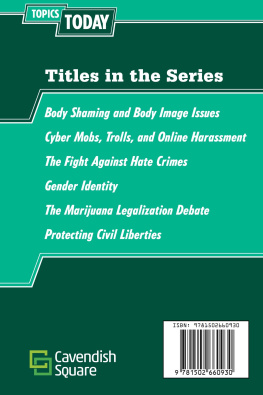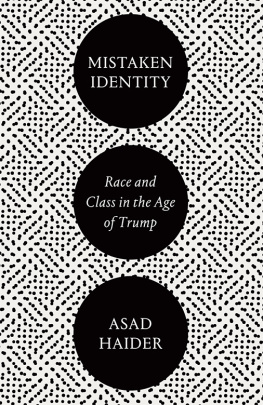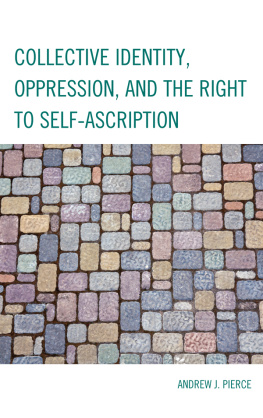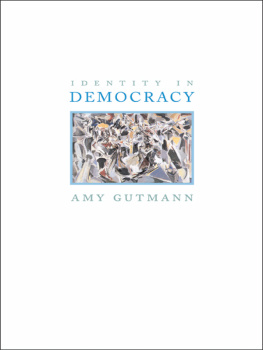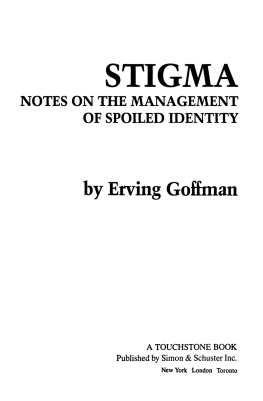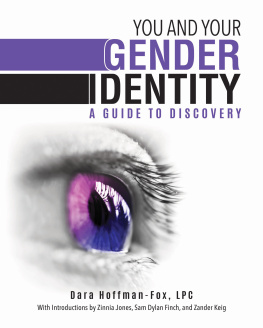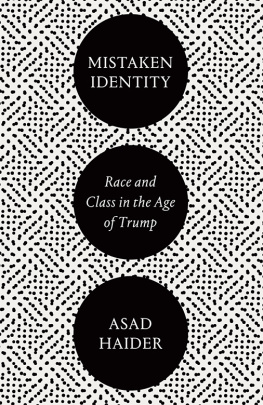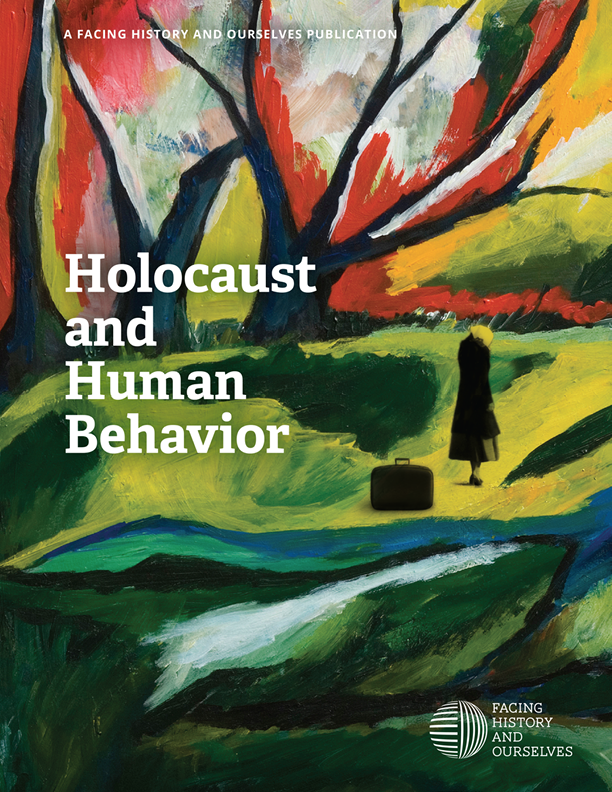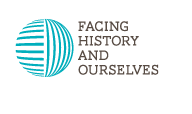A Facing History and Ourselves Publication
Holocaust and
Human Behavior
Facing History and Ourselves is an international educational and professional development organization whose mission is to engage students of diverse backgrounds in an examination of racism, prejudice, and antisemitism in order to promote the development of a more humane and informed citizenry. By studying the historical development of the Holocaust and other examples of genocide, students make the essential connection between history and the moral choices they confront in their own lives. For more information about Facing History and Ourselves, please visit our website at www.facinghistory.org.
Copyright 2017 by Facing History and Ourselves, Inc. All rights reserved.
Facing History and Ourselves is a trademark registered in the US Patent & Trademark Office.
Cover art credits: iStock.com / Claudiad; iStock.com / monkywrenched
ISBN: 978-1-940457-19-2
Dedication
Richard and Susan have been staunch supporters and friends of Facing History for almost 40 years. Their foresight in funding the revision means that we will embrace twenty-first-century, cutting-edge educational technology and the newest teaching strategies that better engage students. This project increases our effectiveness and expands our virtual reach to educators in almost every country of the globe.
Roger Brooks, President and Chief Executive Officer
Facing Historys teachers and students have benefited enormously from the leadership of Richard and Susan Smith and the Richard and Susan Smith Family Foundation. The familys visionary grant for the revision and publication of the 2017 edition of Holocaust and Human Behavior was a major five-year investment in the organizations future.
The Facing History community appreciates the guidance and wisdom the family continues to provide. The community acknowledges, with great sadness, the recent passing of Susan Smith. Her passion for and commitment to Facing Historys impact on young people remains without parallel.
About the Richard and Susan Smith Family Foundation
The Richard and Susan Smith Family Foundation (smithfamilyfoundation.net) is committed to effecting permanent, positive change in the lives of the residents of Greater Boston, particularly individuals and families in economically disadvantaged communities. Today, three generations of the Smith family oversee the foundation, stewarding approximately $15 million annually in grants aimed at promoting greater health, educational attainment, and economic mobility.
Acknowledgments
The completion of this revised edition of Holocaust and Human Behavior would not have been possible without the remarkable generosity of the Richard and Susan Smith Family Foundation. Facing History recognizes its invaluable contribution to the organization and owes them a tremendous amount of gratitude for their support.
In addition, a resource of this magnitude is achievable only through the efforts of a large collaborative team. With that sentiment in mind, the entire Facing History staff is to be recognized for their talent and contributions to this project. In particular, we acknowledge the research and writing of Margot Stern Strom, leader of Facing History and Ourselves for nearly 40 years, and Phyllis Goldstein, our senior writer for 25 years, for providing the intellectual foundation for the book. We are immensely grateful for the wisdom, knowledge, and inspiration they provided on this project and over the course of their careers.
Daniel Sigward was the primary writer and editor, assisted by Marty Sleeper, Laura Tavares, and Jocelyn Stanton, who each wrote and edited sections of the book. Along the way, a variety of staff members also served as important editorial and administrative advisors: Marc Skvirsky, Adam Strom, Michael Durney, Doc Miller, Mary Johnson, Roger Brooks, Milton Reynolds, and Kevin Feinberg. Tracy OBrien, Eva Radding, Madison Reynolds, and Kate Boylan in the Facing History library provided key guidance throughout the research process and ensured that the resources we needed were on hand.
This book and its digital counterparts were developed under the direction of Brooke Harvey. They were produced under the supervision of Catherine OKeefe, with support from production team members Anika Bachhuber, Alissa Parra, and Samantha Landry. The accompanying website (facinghistory.org/hhb) would not have been possible without the knowledge, technical skills, and diligence of April Osheroff-Lambert, Ariel Perry, Erin Tackney, and Christopher Mallon. Under Adam Stroms leadership, Alexia Prichard and Rob Tokanel created dozens of short documentary films that complement the examination of history and human behavior in this resource.
We are fortunate and thankful to have received the guidance of leading scholars in the history of the Holocaust, civic participation, and the social sciences. We would like to thank Michael Berenbaum, Paul Bookbinder, Danielle Christmas, Lawrence Langer, Peter Levine, Barry Trachtenberg, and Waitman Wade Beorn for reviewing drafts of the manuscript. Special thanks go to Doris Bergen, Stephanie Corazza, Ryan Masters, and Timothy Langille, whose insight and support ensured that this book represents historical scholarship of the highest quality.
Get Started
Teaching the Holocaust to Help Us Understand Ourselves and Our World
Holocaust and Human Behavior leads students through an examination of the catastrophic period in the twentieth century when Nazi Germany murdered six million Jews and millions of other civilians, in the midst of the most destructive war in human history.
Following Facing Historys unique scope and sequence, the book also takes students on a parallel journey through an exploration of the universal themes inherent in a study of the Holocaust that raise profound questions about human behavior.
By focusing on the choices of individuals who experienced this history as victims, witnesses, collaborators, rescuers, and perpetrators, students come to recognize our shared humanitywhich, according to historian Doris Bergen, helps us to see the Holocaust not just as part of European or Jewish history but as an event in human history, confirming the relevance of this history in our lives and our world today.
This approach helps students make connections between history and the consequences of our actions and beliefs todaybetween history and how we as individuals make distinctions between right and wrong, good and evil.
As students examine the steps that led to the Holocaust, they discover that history is not inevitable; it is the result of our individual and collective decisions. They come to realize that there are no easy answers to the complex problems of racism, antisemitism, hatred, and violence, no quick fixes for social injustices, and no simple solutions to moral dilemmas. After studying Nazi Germany and the Holocaust, one Facing History student wrote, It has made me more awarenot only of what happened in the past but also what is happening today, now, in the world and in me.
As theologian Eva Fleischner explains, learning about this history can change each of us: The more we come to know about the Holocaust, how it came about, how it was carried out... the greater the possibility that we will become sensitized to inhumanity and suffering whenever they occur.


